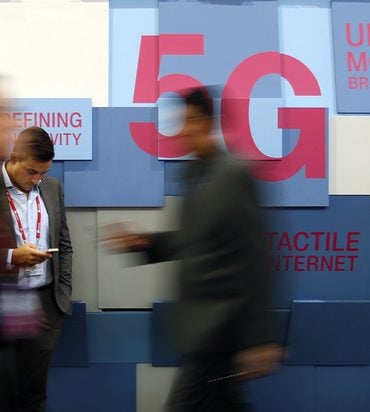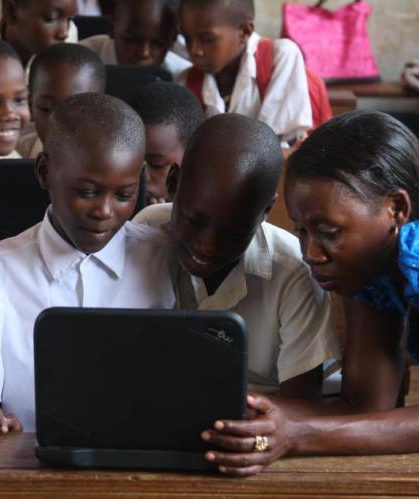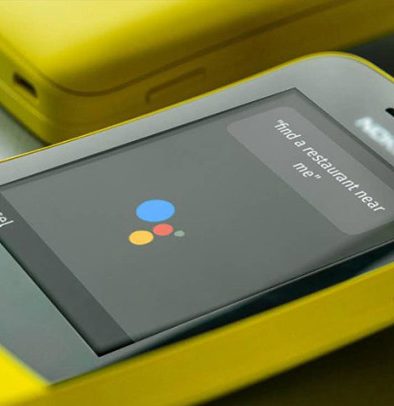Find out the week’s top mobile stories from around the world.
This week… report finds Facebook and Google use ‘dark patterns’ around privacy settings, Supreme Court’s mobile privacy stand, what US retailers can learn from China about mobile payments and much more…

Facebook and Google use ‘dark patterns’ around privacy settings, report says
BBC
Facebook, Google and Microsoft push users away from privacy-friendly options on their services in an “unethical” way, according to a report by the Norwegian Consumer Council.
It studied the privacy settings of the firms and found a series of “dark patterns”, including intrusive default settings and misleading wording.
The firms gave users “an illusion of control”, its report suggested.
Both Google and Facebook said user privacy was important to them.
The report – Deceived by Design – was based on user tests which took place in April and May, when all three firms were making changes to their privacy policies to be in compliance with the EU’s General Data Protection Regulation (GDPR).
Read more…
The Supreme Court’s Mobile Privacy Stand Should Prompt Further Changes
Fortune
There was an important, close, widely watched Supreme Court decision last week that could have big implications for parts of the tech industry for decades to come. No, not the 5-4 ruling allowing states to require sales tax collection from e-commerce sites in the South Dakota v. Wayfair case. (Though if that’s your bag, The Economist had a good analysis.)
Instead, it’s the 5-4 decision in Carpenter v. United States that’s also worth examining deeply.
Carpenter in this case is “Little Tim” Carpenter, who was convicted as the alleged organizer of a crime spree where a gang of crooks stole bags of brand new smartphones at gunpoint from more than half a dozen Radio Shack and T-Mobile stores in and around Detroit. In 2011, Carpenter was nabbed, in part, because the police had subpoenaed records from his cellphone provider that included somewhat crude but voluminous realtime location data covering 127 days. And Carpenter was around the robbed stores at the times of the robberies, the records showed.
Read more…
What can US retailers learn from China about mobile payments?
Mobile Payments Today
When it comes to mobile payments, it’s no secret that China is in the lead globally. In 2016, mobile payments totaled $5.5 trillion in that country, according to iResearch Consulting Group. In comparison, Forrester Research estimated that the U.S.’s mobile payments market was $112 million – clearly a significant difference.
The success in China is largely driven by consumers’ adoption of mobile wallets like Alipay and WeChat/Ten Pay, which make up the majority of the mobile payment market. While there are some mobile wallets in use here in the U.S., they are not nearly as widely adopted.
Getting consumers to change payment behaviors can be challenging, but people almost always have their mobile phones with them. With the right motivation, merchants can capitalize on the growth opportunity and cost savings that mobile payments present.
Read more…
Mobile data driving Indonesia telco revenue growth
Telecomasia
Demand for mobile data will drive growth in Indonesian telecoms and pay TV revenues through to 2022, according to a new report from GlobalData.
The analytics and consultancy company predicts that overall pay TV and telecoms services revenue in Indonesia will grow at a CAGR of 3.7% over the period between 2017 and 2022.
Mobile data revenue will grow at a solid 6.4% CAGR over the course of the forecast period as a result of rising smartphone penetration, growing adoption of LTE and LTE-A services, and the subsequent growth in mobile data ARPU, according to GlobalData analyst Sandeep Koakotla.
“The ongoing LTE/LTE-A network expansions, including in rural areas and 5G development trials by MNOs will create major opportunities for investors and vendors in the Indonesian telecom market,” he said.
Read more…
Crypto in Africa: Startup meshes with free mobile data, KryptoPal helps African kids
Coin Geek
Blockchain technology has brought a great deal of solutions to various African countries. Different innovations continually come up to help curb the problems afflicting African countries—the latest of which is courtesy of a South African company looking to provide free data to the continent.
BlockMesh, a South Africa-based cryptocurrency company, is embarking on an ambitious project to make mobile data use in the country free. Using the latest innovations in mesh networking, the company plans to “create cost-free communications networks,” effectively “disrupting the communications industry.”
According to the company, South Africa’s poverty and high data prices have largely contributed to the slow growth in the country. BlockMesh’s new project will help the majority of people in the country and other developing countries save up money.
Read more…
5G and AI to drive mobile future
New Straits Times
SHANGHAI: Two technology developments that will be front and centre for the mobile future are 5G and artificial intelligence (AI).
Speaking at the Mobile World Congress Shanghai 2018, director general of GSMA Mats Granryd said the mobile industry continues to make strong progress with 5G, with 5G leaders planning commercial launches this and next year, including operators in South Korea, Australia and the Philippines, as well as the US and the UAE.
“Operators in China, India and Japan will launch 5G by 2020, and we’ll see other countries across Asia Pacific following.
“GSMA Intelligence forecasts that by 2025, there will be 1.2 billion 5G connections worldwide, with 5G networks covering almost 40 per cent of the global population.
“Asia Pacific will account for more than half of these, or 675 million 5G connections by 2025, to be precise,” he said.
Read more…
Now apply for Indian passport on mobile, from anywhere
Khaleej Times
External Affairs Minister Sushma Swaraj on Tuesday launched the mPassportSeva Mobile App along with a new scheme by which an applicant can apply for passport from anywhere in the country, an official statement said.
The mPassport Seva App, released on the occasion of the Sixth Passport Seva Divas, is available in Android and iOS platforms and will have the facilities to apply, pay and schedule appointments for passport services.
“With the launch of this mPassport Seva App, citizens would not require access to a computer and printer to apply for passport services,” it said.
The new app will support services such as new user registration; signing in to registered user account; application form filing to apply for passport and police clearance certificate; paying for passport services; appointment scheduling; application availability status; document advisor; and fee calculator.
Read more…
4G provision in Brazil sees mixed results
ZD Net
4G provision in Brazil has seen mixed results over the last six months, according to a new report.
The second Mobile Networks Update for Brazil by UK research firm OpenSignal considered metrics such as availability, average download and upload speeds as well as latency.
4G availability in the country has seen a “notable increase” over the period on three of Brazil’s four national LTE providers.
The biggest availability gains were delivered by América Móvil’s Claro and Telecom Italia’s TIM, the report says, with 4G availability scores both climbing 4 percentage points. For TIM in particular, users were able to tap into a LTE signal 75.9 percent of the time.
Read more…
Google invests $22M in feature phone operating system KaiOS
Tech Crunch
Google is turning startup investor to further its goal of putting Google services like search, maps, and its voice assistant front and center for the next billion internet users in emerging markets.
It has invested $22 million into KaiOS, the company that has built an eponymous operating system for feature phones that packs a range of native apps and other smartphone-like services. As part of the investment, KaiOS will be working on integrating Google services like search, maps, YouTube and its voice assistant into more KaiOS devices, after initially announcing Google apps for KaiOS-powered Nokia phones earlier this year.
“This funding will help us fast-track development and global deployment of KaiOS-enabled smart feature phones, allowing us to connect the vast population that still cannot access the internet, especially in emerging markets,” said KaiOS CEO Sebastien Codeville in a statement.
Read more…
Ad Council creates story-driven mobile chat to combat teenage drinking and driving
The Drum
The Ad Council is releasing its first story-driven chat experience on a mobile platform to help combat underage drinking and driving.
Developed in partnership with the conversational marketing platform Snaps, the chat was inspired by the insight that teens increasingly seek out interactive stories and “chatbots” online. The ‘Ultimate Party Foul’ chat experience leverages the chat format to integrate a message about the consequences of underage drinking and driving.
The ‘Ultimate Party Foul’ experience is hosted on Facebook Messenger and supported with donated media from Facebook.













